You’ve just heard from your friend. A Classical Conversations group is starting in your town. Do you want to join? Before you make that choice, take some time to read my full Classical Conversations homeschool curriculum review. Maybe it will (or maybe it won’t) be the right program for your family!
If you are a newcomer to homeschooling, I highly suggest enrolling in the Homeschool Parenting Program. This program will provide you with comprehensive knowledge of homeschooling, ensuring that you feel confident and at ease. The course is both engaging and enlightening.

I hope you enjoy reading this blog post. If you want to do my course on how to homeschool, click here.
Please note: Rebecca Devitt isn’t the author of this post. The author of this post wished to remain anonymous.
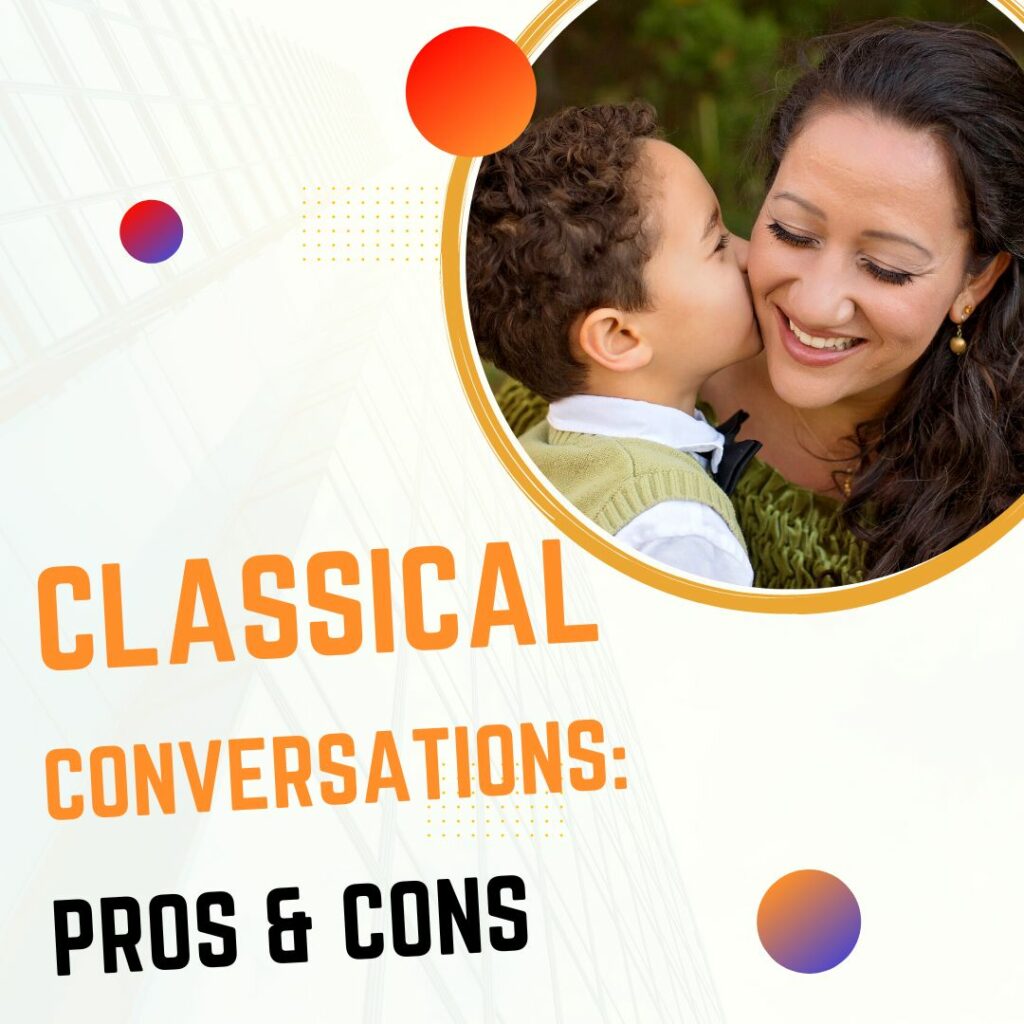
Affiliate links are included in this article.
What is Classical Conversations?
At its core, Classical Conversations is a Christian, classical homeschooling program.
Let’s start by thinking about what it means to be a classical educator…because you have to like the classical homeschooling method before you even think about whether you’ll like Classical Conversations.
Classical education is a popular approach to homeschooling. It is based on a style of learning that comes from the ancient Greeks.
In most classical curricula, students will read books from the Western canon and receive a liberal education. By liberal, classical educators mean that learning is not related to a job or earning money.
Christian classical education is similar.
This method aims to know Christ by learning what is good, true, and beautiful. In fact, Classical Conversation’s motto is “To know Christ and make Him known.”
If you aren’t sure about classical education, my Homeschool Parenting Program (HPP) digs right into this method. And if the classical method isn’t for you, you’ll learn about many other ways to homeschool in the HPP.
How Does Classical Conversations work?
No two classical programs are the same. Here’s what makes Classical Conversations special.
Classical Conversations is a community
Perhaps the most important part of Classical Conversations is that it is more than a curriculum. It is a community of home-educating families.
This community meets once a week in person. At these meetings, trained teachers lead classes for the children based on the Classical Conversations curriculum. These teachers are often homeschool parents.
At home with your child, you will review and practice what they learn in class.
Keep in mind that you will need to teach math at home with Classical Conversations with a mathematics program (CC use Saxon math, as we discuss further down the page).
If your child is younger, you will also need to teach them to read. Older students will have work to complete at home.
Classical Conversations provides a place to connect online, as well. They have an online forum to discuss ideas with other parents.
Conveniently, you will also find online training and a place to share resources. It’s an awesome spot to find support outside of the weekly meeting.
Classical Conversations follows the Trivium
In classical education, the trivium refers to three stages of education: grammar, logic, and rhetoric. This sets the scope and sequence for Classical Conversations. (Take a peak at the video below for a great overview of classical education)
Classical Conversations students spend time in each stage. From ages five to eight, a child is in the grammar stage. This stage focuses on memory.
Students will memorize timelines from history, Scripture, math, Latin, and more. Their memory work provides a foundation for future learning. As a matter of fact, Classical Conversations calls this the Foundations level.
Next, the child enters the logic stage or Essentials level. This stage is for nine to eleven-year-olds. Essentials build on memory work by asking students to analyze and group words. As a result, it focuses on learning grammar rules, parts of speech, and writing.
Finally, Classical Conversations offers the Challenge level. For students over twelve, this is the rhetoric stage of classical education.
Rhetoric is about developing arguments based on what you have learned. Because of this, debate is a key feature of Classical Conversations at this level. Students also learn Latin, science, math, and more.
Classical Conversations helps you teach your children
Classical Conversations doesn’t do it all for you. They also help you learn to teach your children. At weekly meetings, parents attend classes with their children so that you (the parent) learn with them.
Classical Conversations also runs a yearly practicum for parents. This is a live event that runs in many places. You’ll get training in teaching and have the chance to meet many other homeschool parents.
Common Questions about Classical Conversations
You probably have loads of questions about Classical Conversations curriculum. Here are the most common!
What does Classical Conversations cost? Is it expensive?
Classical Conversations takes an enrollment fee. This fee gets you:
- In-person, weekly meetings
- Access to an online app with resources to support learning at home
- A curriculum guide
Classical Conversations started a new pricing model in 2022. It’s family-friendly and limits the cost.
Plus, there is a cap on the cost. Even if you have a lot of kids, you will only have to pay for a maximum of three children per family.
Coupled with that, you only pay one fee if you have over one child on the same level (Foundations, Essentials, or Challenge).
But while Classical Conversations has put together a pricing model that can work for families, it can be hard on a budget.
One student in Foundations or Essentials costs over $600 a year in 2022.
A student in Challenge will cost over twice as much. You will need to think about the value of weekly tuition.
Are the curriculum and community support worth it for you?
Is Classical Conversations accredited?
Classical Conversations is not a school, so it cannot have accreditation. Therefore, you will need to see what your state requires for homeschool reporting and follow that process.
However, Classical Conversations is a strong program. It will almost certainly meet your needs.
What books will my child read in Classical Conversations?
It’s difficult to visualize day-to-day homeschooling with Classical Conversations until you start. Knowing what books you’ll use can help.
In the younger years, you’ll find books like Story of the World by Susan Wise Bauer. The Lyrical Life Science series provides science education.
Classical Conversations uses Saxon math. The Essentials level includes Our Mother Tongue for teaching grammar.
At the challenge level, students read many books. Many of these are Newbery Award winners.
The curriculum includes classics like Number the Stars by Lois Lowry and The Secret Garden by Frances Hodgson Burnett. As children work through the challenge levels, they end their studies with Shakespeare, as well as classic texts like The Iliad and The Odyssey.
Looking for more books to build your home library? Check out this complete classical homeschool booklist. It breaks down appropriate books by grade level so you can find the perfect books for your kids!
Can I do Classical Conversations without the community?
Most people say that the community is the best part of Classical Conversations. They (and their kids) enjoy the time together. It’s a place to make real friends!
But perhaps there isn’t a community local to you. Or maybe you can’t meet because of your schedule. Do you still need the weekly meeting to use Classical Conversations?
The answer is yes and no. At the Foundations level, you can purchase the curriculum through Classical Conversations and apply it in your home.
At Essentials and Challenge level, there are some parts of the program that you can only get through the community. This means that the teacher will have access to material you cannot purchase yourself.
How many days a week do I need for Classical Conversations?
Classical Conversations is a commitment. To start, you will need time to attend the meetings.
Foundations students will spend one morning weekly in lessons. This becomes a full day for Essentials and Challenge students.
At home, you will need to review memory work with your Foundations students and complete your math and reading program.
At the Essentials level, you will need about thirty minutes daily to review what was taught the week before.
By Challenge level, students will have around an hour of work a day at home.
Did you have any problems with the Classical Conversations curriculum in your review?
No homeschool program is perfect. In my review of the Classical Conversations curriculum, I have found a few problems that might come up.
Experience can vary
Because the weekly meeting is such a big part of Classical Conversations, it can make or break the program.
If you or your children don’t click with your local group, it may not be very fun.
Likewise, a lot depends on the director and teachers. You might want to meet people in person and even ask to visit before you decide.
Tuition might be a lot of money for you
Even with family-friendly pricing, Classical Conversations costs money. For some budgets, it might be quite a bit of money.
As I mentioned above, you will need to think about the value you get from the program compared to the cost.
Classical Conversations may not really be classical
More and more families are homeschooling. Classical education is also getting more attention. So it’s no surprise that there are lots of ideas and approaches to this type of education and that some people say that Classical Conversations isn’t quite classical.
Instead, they say, it better fits into a type of education called neoclassical.
This means that Classical Conversations bases its program on Dorothy Sayers’ essay “The Lost Tools of Learning.” Because of this, it divides learning into the stages of the trivium.
Some people say, though, that truly classical education would include the entire trivium at every level of learning. This means that at every age, a child will have memory work, use logic and reasoning skills, and discuss ideas.
Will I Need to Supplement Classical Conversations
While Classical Conversations offers a rigorous education, it probably doesn’t have enough at the Foundations level to give your child a full education.
Because the focus is almost entirely on memory work, there are very few books or extra studies included in the curriculum.
Because books are such a great way to learn, you might want to add more in (you can use this booklist to supplement CC).
While Classical Conversations includes many more books at the challenge level, you’ll want to take a good look at the scope and sequence and make sure that you are happy with it. Like others, you can always add to the program at home.
Are there alternatives to Classical Conversations?
Although it’s the focus of this review, Classical Conversations is not the only classical curriculum on offer today! While its community approach might be unique, you can look into other options, like Memoria Press.
I’ve listed a few below. You can also find more in my review of popular classical curricula here.
Classical Conversations vs. Memoria Press
Like Classical Conversations, Memoria Press is a classical Christian curriculum.
But it is a mailable curriculum that comes to your door in a box.
Memoria Press is a full program with a guide and a set of books for each grade level. There are packages that cover spelling, reading, math, science, history, and more.
Memoria Press provides a broader curriculum than Classical Conversations. There are more books scheduled in the younger years.
Memoria Press also schedules some books earlier. For example, Memoria Press schedules The Iliad in eighth grade. In Classical Conversations, students will read The Iliad in twelfth grade.
Unlike Classical Conversations, you won’t get the community unless you find it through online groups. But, perhaps that’s not an important factor for you.
Classical Conversations vs. Veritas Press
Veritas Press is also a classical Christian curriculum program that helps kids with different learning styles.
For this reason, its program provides hands-on, auditory, and visual learning at every step.
It also offers an online program which is a little more modern compared to something like Memoria Press.
Like Memoria Press, Veritas Press schedules more books and guides in more subject areas in the younger years.
Veritas Press offers complete packages for every grade level.
You’ll find Bible, Art, reading and literature, math, history, grammar, and geography. Veritas Press also provides a range of other classes.
Their online courses could be great alternative to Classical Conversations if you want some teaching support.
Classical Conversations vs. My Father’s World
My Father’s World is a popular homeschooling curriculum. You can read my curriculum review of MFW here. Classical Conversations is quite different from MFW however.
Unlike Classical Conversations, My Father’s World brings in many teaching methods.
They draw on the Charlotte Mason method, classical education, and unit studies. They use the trivium as a framework for their program.
However, it is still a mix of methods. You will want to think about whether this is a pro or con in your homeschool.
How does Classical Conversations compare to the Charlotte Mason method?
As you may have noticed in my review, the Classical Conversations curriculum has some pretty big differences compared with the Charlotte Mason method. You can read more about her ideas in this article or watch the video below.
For now, let me give you the highlights.
- Charlotte Mason starts with ideas. Classical Conversations begins with memory work. They say, “The facts they memorize establish a set of knowledge ‘pegs’ on which they will “hang” the details of higher learning in later years.” Charlotte Mason, however, wrote that a child first needs ideas, and later the child will hang facts upon those ideas. For this reason, literature takes the center stage of a Charlotte Mason curriculum, even in the early years.
- Charlotte Mason does not use the trivium. Charlotte Mason did not arrange her method based on ages and stages of learning. Instead, by asking all children to narrate (or tell-back what they just learned), children naturally remember, organize, and discuss what they’ve learned.
- Charlotte Mason is literature-rich from the beginning. Memory work is part of a Charlotte Mason curriculum. However, as I mentioned before, literature is really the focus of the Charlotte Mason method. For this reason, most Charlotte Mason curricula will include a lot of books in nearly every subject area. In Classical Conversations, there is less literature scheduled until the Challenge stage.
How to Find a Classical Conversations Group Near You
After carefully considering it, you’ve decided you’re ready to join Classical Conversations and learn more!
If you want to find a Classical Conversations group near you, head to their website. You can search to find options near you.
If you live internationally, you will also have options to find an international homeschool group in your country. (Most CC groups are in the United States.)
Classical Conversations Curriculum in Review: Is it the program for you?
Ultimately, you are in charge of your homeschool. Will Classical Conversations work for you? If you want to join a community of classical homeschoolers, why not get in touch and explore what they offer?
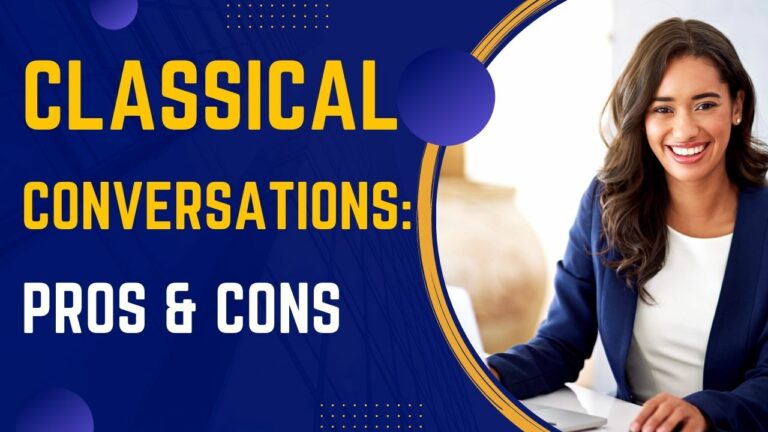
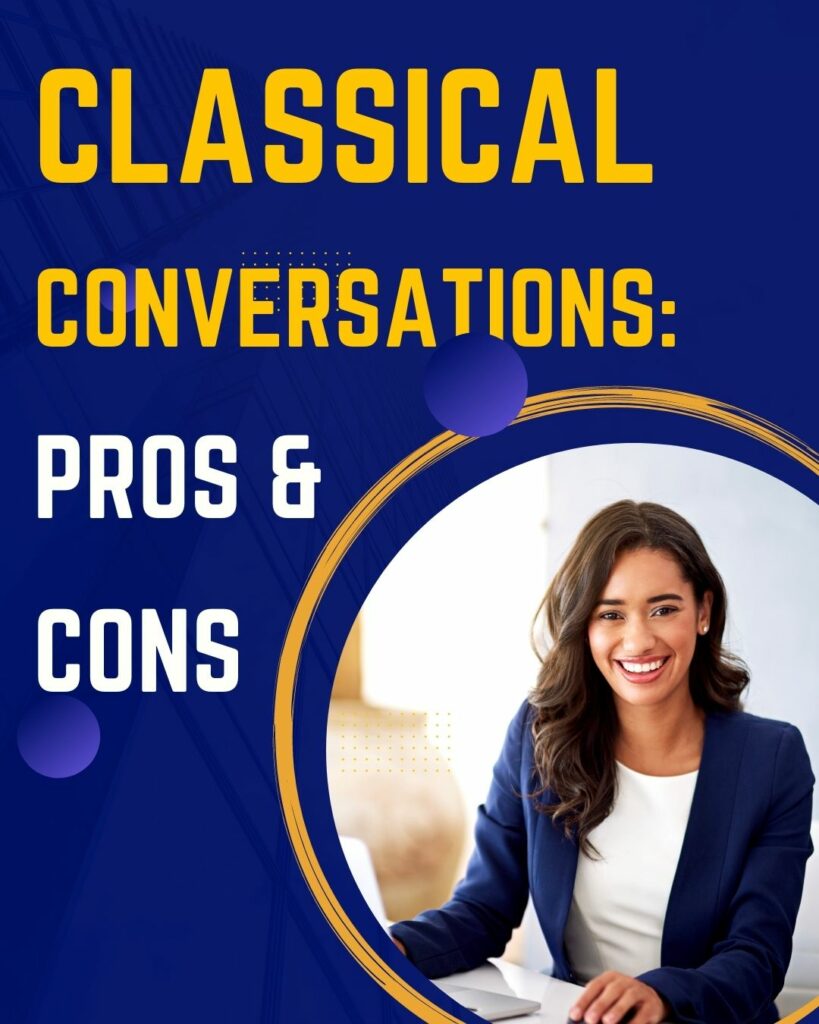
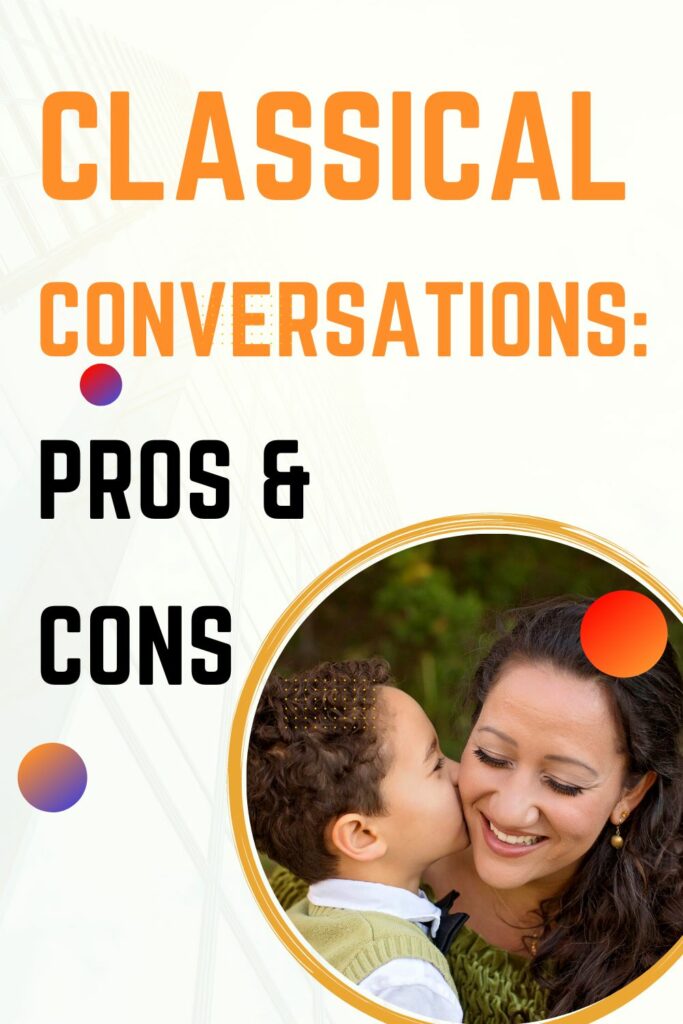
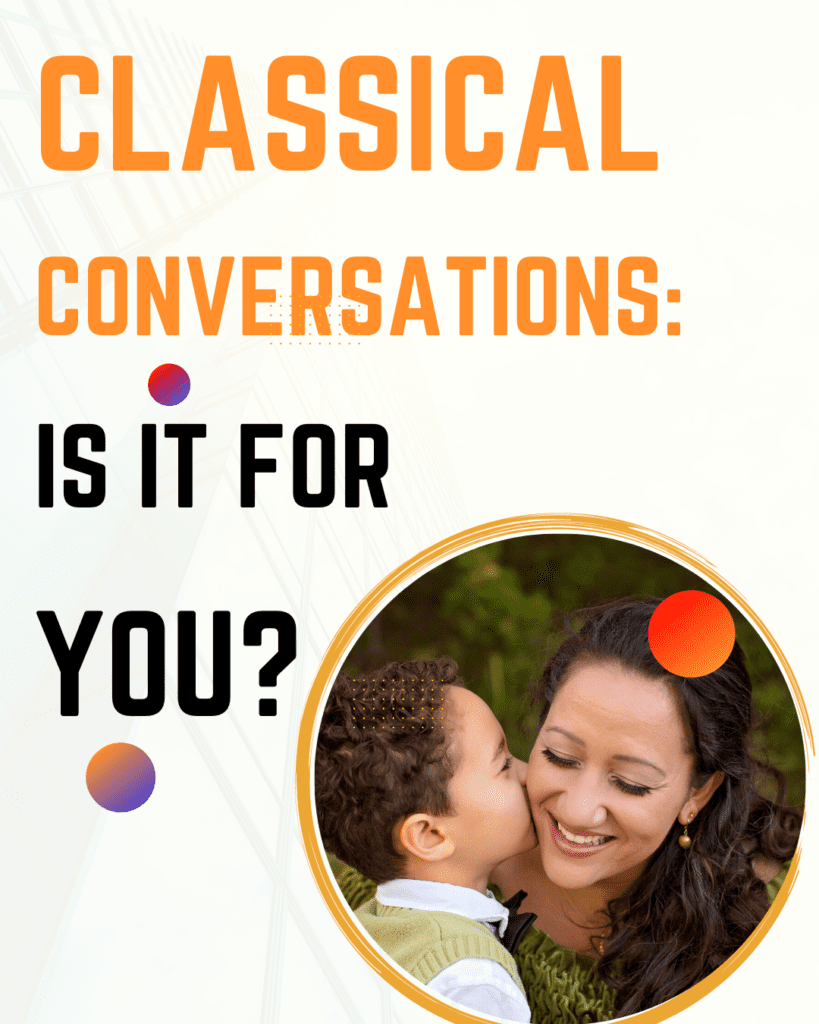
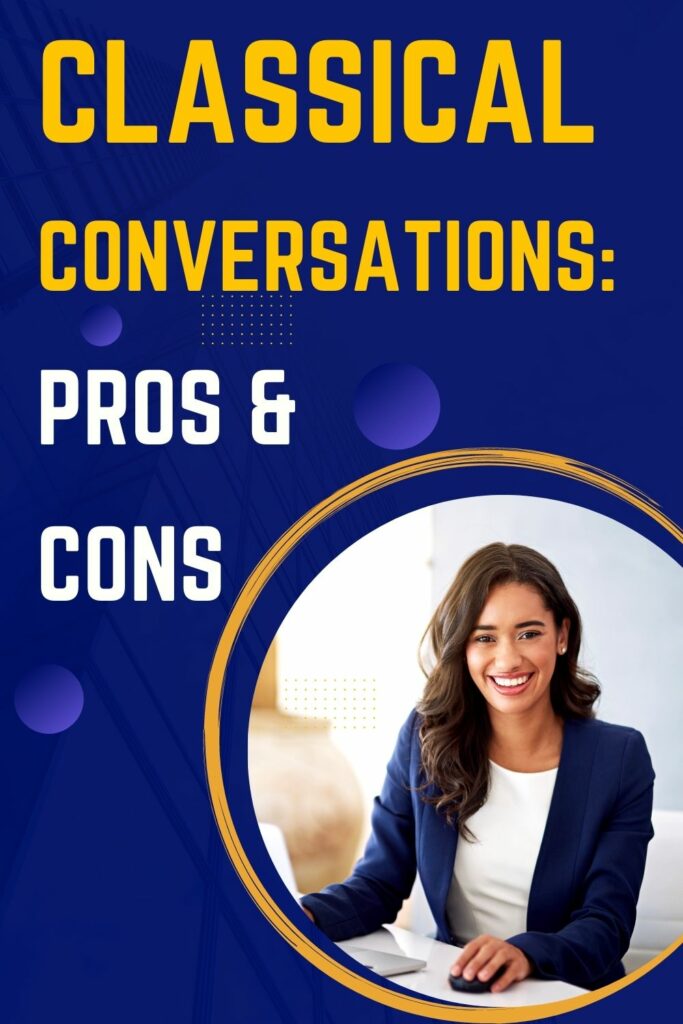


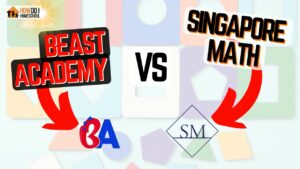
I know people who are enrolled and they strongly dislike it, I highly recommend not enrolling in this program.
Yes, I’ve heard mixed accounts. I wonder if it depends a lot on the person running the course. It’s a franchise.
Very thorough article! However you mentioned that the groups are led by teachers. CC corporate is very firm on reminding parents that they are the teachers so as to remove responsibility from the tutors. We are not allowed to call them tutors.
This has advantages and disadvantages. If you end up with a brand new person tutoring, they could have little to no knowledge on what they are tutoring especially Latin and Logic. I was unprepared for the lack of direction for these two subjects in particular.
I meant to say we are not allowed to call them teachers.